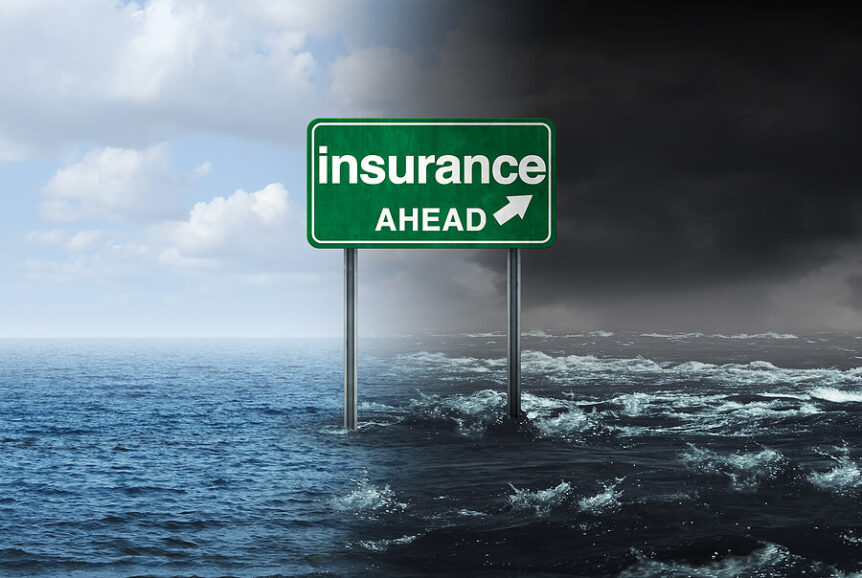No one knows when the next big hurricane is going to hit, so it is impossible to predict when you will need to file a hurricane insurance claim. Understanding the steps that you need to take after your home or property is damaged will not only help to speed along recovery time—it can also lead to a bigger claim check.
Hurricane claims are some of the most stressful to file considering the devastation that can occur. Furthermore, your insurance company is likely to be overwhelmed by claims, which can slow recovery times. In many cases, the amount people receive from their insurance is less than they deserve, so when you know how to move forward, you are less likely to be taken advantage of by the insurance company.
Many of the provisions included in a typical insurance policy are confusing, and it can be difficult to tell what your policy actually covers. To prepare for a worst-case scenario in which you have to file a hurricane insurance claim, you should review your insurance policy, if possible, with the help of an attorney.
Which brings us to the first step you should take after a hurricane damages your property.
Call Your Attorney and Then Your Insurance
We have said this many times before, but it bears repeating—the primary goal of your insurance provider is profit. This might sound a bit callous, but even if you have a good relationship with your insurance agent, they still work at the direction of their corporate bosses. Those bosses are in it for the money, and you can bet that they have a team of lawyers on their side to make sure they can pay out as little as possible.
Your first call in an emergency should always be 911 if you are in immediate danger. After you are safe, you should call your attorney. When you include your attorney in the initial stages of a hurricane insurance claim—not waiting until your claim is underpaid or denied—your chances of recovery go up. Proper legal counsel can ensure that you file your claim correctly for maximum effect.
Take Action to Prevent Further Damage
After you call your attorney and file a claim with your insurance, you need to spring into action. Things can be hectic after a storm, but it is critical to take steps to prevent further damage from happening to the structure of your property and any items inside of it. If you do not prevent damage, such as water damage from a leak, you might not be covered.
Here are a few key actions you should take:
- Make temporary repairs to prevent further losses.
- Save any personal property you can.
- Take photos and video of the damage to your home as soon as possible to document the extent of your losses.
- Aside from temporary repairs to prevent damage, do not make any changes to your property.
- Do not throw any ruined items or materials away.
If the threat of injury is too great after a storm, you should not put your safety at risk to save your property. For instance, if there is a downed powerline preventing you from accessing your property, you should not risk serious injury just to save a few items from being destroyed.
Create a List of Personal Item Losses for Your Hurricane Insurance Claim
In addition to documenting the damage to your home, you also need to provide proof of losses for items inside your home. For most homeowners and business owners, this is one of the most difficult tasks in the entire process.
Why?
Because they did not create an inventory list before the hurricane destroyed their property. Creating an itemized list of belongings that were destroyed in a hurricane is a whole lot easier when you know what you had in the first place.
Here are some of the details you should include in your home inventory:
- A description of each item
- Where it is located in the home
- How much it cost when you purchased it (keep your receipts for this reason)
- Compile your receipts, especially for large purchases
- What it would cost to replace the item, if your policy pays out using replacement cost rather than actual cash value.
Part of the reason it is critical to take an inventory in advance is that your claim cannot be completed until you provide proof of your losses. The faster you share your losses, the faster your insurance company will be able to compensate you.
Understand Your Policy
If you do not understand how your policy works, you cannot know whether your insurance company is treating your fairly. One of the most important aspects that you can understand about your policy’s coverage is how it will value your losses. For most policies, the insurance company bases the payout on whether you chose a policy that calculates losses using Actual Cash Value, Replacement Cost, or Replacement Cost with the option to cash out.
Actual Cash Value
When you choose a policy that calculates losses using their actual cash value, you are only eligible to receive the depreciated value of any damaged or destroyed items and building materials. Policyholders usually choose this type of plan to save money. However, if you choose an actual cash value policy and have to file a hurricane insurance claim, you will quickly see the payout will not be adequate.
Replacement Cost
A replacement cost policy covers the replacement cost of items that are damaged or destroyed in a disaster. To receive full compensation, you may have to replace the items first.
Replacement Cost with Cash Out Option
This type of policy is usually reserved for homes that have a high value. It is the most flexible option.
Need Help with Your Hurricane Insurance Claim?
Don’t go through the process of filing a claim without the representation you need. Contact the attorneys at RRBH Law today to discuss how we can protect your interests.

